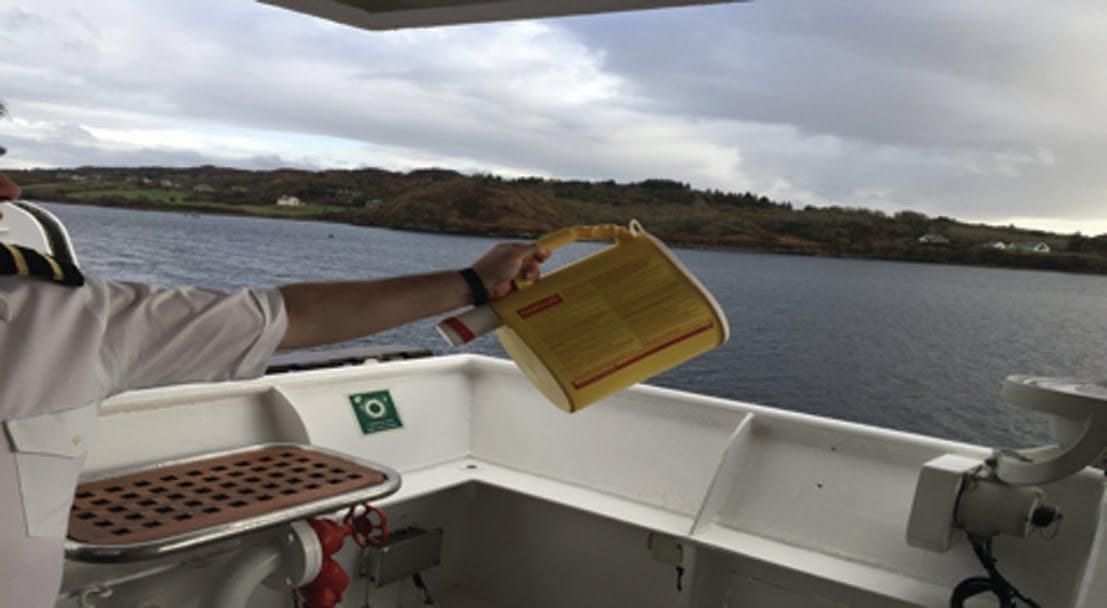When there is inexperienced crew on board a ship, senior seafarers should take special care in guiding and supervising them. This advice is given by The Nautical Institute in a recent Mars Report in which a junior crew member was injured after misinterpreting a suggestion by one of his seniors.
The Mars Reports are compiled (anonymously) by The Nautical Institute to prevent other accidents from happening. A summary of this incident:
A vessel was at sea and holding position. As a training exercise, the ship’s deck crew were discharging line throwing apparatus (LTA) on deck. Before the exercise, a toolbox talk was completed and the dangers discussed, including the importance of standing clear of the device when firing takes place. The device operating instructions were read out to the exercise participants.
After the first LTA was discharged, it was noted that there was a danger that the line could become fouled in the ship’s propellers after falling into the water. As a solution, a senior crew member suggested catching the line on its descent to speed up recovery. Unfortunately, the designated crew member caught the line too early – on its ascent.
The speed and trajectory of the line caused it to cut through the victim’s glove and cause a minor friction burn to a finger. The victim was immediately given first aid treatment. The victim was new to the ship and relatively inexperienced. The suggestion of catching the line on its descent was made by a senior member of the crew and taken as an order by the inexperienced crew member.
Advice from The Nautical Institute
- Young or old, experienced or not, the practice of good seamanship is often just a matter of common sense. If a suggestion or order does not make sense, then it should be questioned immediately.
- Senior or more experienced seafarers must remember that they have a responsibility to supervise less experienced crew members in the practice of good seamanship and be aware that suggestions can sometimes be regarded as orders.
Mars Reports
This accident was covered in the Mars Reports, originally published as Mars 202029, that are part of Report Number 331. A selection of this Report has also been published in SWZ|Maritime’s June 2020 issue. The Nautical Institute compiles these reports to help prevent maritime accidents. That is why they are also published on SWZ|Maritime’s website.
More reports are needed to keep the scheme interesting and informative. All reports are read only by the Mars coordinator and are treated in the strictest confidence. To submit a report, please use the Mars report form.








